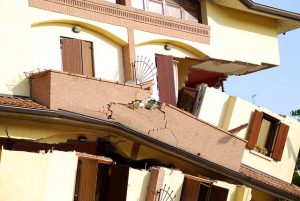A Business Guide to Earthquake Insurance
March 2, 2017
 Earthquakes occur almost every day in Los Angeles, San Francisco, Seattle, and Portland. Most are not large enough to cause damage, but sooner or later a big one will hit. The resulting damage, loss of life, and the impact on our economy could be devastating. Many businesses may not even give earthquake insurance much thought, but if you are in the process of business planning or working through your renewal, earthquake insurance may be wise to consider.
Earthquakes occur almost every day in Los Angeles, San Francisco, Seattle, and Portland. Most are not large enough to cause damage, but sooner or later a big one will hit. The resulting damage, loss of life, and the impact on our economy could be devastating. Many businesses may not even give earthquake insurance much thought, but if you are in the process of business planning or working through your renewal, earthquake insurance may be wise to consider.
Earthquakes by the numbers (liveScience.com)
- From 2002 to 2012, earthquakes of 4.0 magnitude or greater occurred in 23 U.S. states.
- There are about 500,000 earthquakes a year around the world, as detected by sensitive instruments. About 100,000 of those quakes can be felt, and 100 or so cause damage each year.
- The Pacific Ring of Fire is the most geologically active region of Earth. It circles the Pacific Ocean, touching the coasts North and South America, Japan, China and Russia.
Why you need earthquake insurance
- Your business policy does not cover damage caused by earthquakes. You must either purchase an earthquake coverage endorsement or purchase a separate policy for earthquake insurance.
- You can’t count on the federal government to help.
What earthquake insurance can insure
- Buildings
- Business personal property
- Loss of Business Income
- Earthquake Sprinkler Leakage
- Betterment or Repairs required by local ordinance or law
We recommend every business complete a short risk assessment that can include the following questions:
- Do you operate in a high risk area?
- What would your potential loss be?
- Do you have resources to repair or re-build if there is damage?
- Can you minimize the loss through building retrofits or additional construction?
- What is the cost of insurance?
If you do purchase earthquake insurance, you’ll probably want to buy enough to cover the costs of rebuilding your building and replacing damaged personal property. That means the amount of insurance you buy generally should be based on replacement or reconstruction costs and not the current market value.